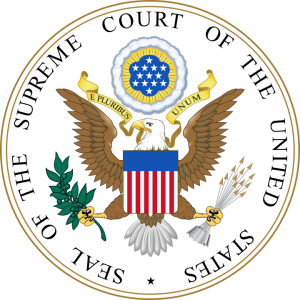 Petitions for certiorari are before the Supreme Court of the United States asking that the Court resolve an important issue impacting False Claims Act liability for government contractors. The issue is whether implied certification of compliance with government contracts and regulations can be actionable in a qui tam lawsuit.
Petitions for certiorari are before the Supreme Court of the United States asking that the Court resolve an important issue impacting False Claims Act liability for government contractors. The issue is whether implied certification of compliance with government contracts and regulations can be actionable in a qui tam lawsuit.
The two cases that prompted the petitions involve contractors who submitted claims to the federal government that were not facially false. Instead, the claims were based on the theory that the defendants falsely implied certification with the law and the underlying government contract that provided the basis for the contractor to make the claim.
First, in United States ex rel. Badr v. Triple Canopy, Inc., 775 F.3d 628 (4th Cir. 2015), the whistleblower alleged that the government was defrauded by the contractor because the company sought reimbursement for guards who did not have the marksman qualifications required by the contract between the government and the company. Second, in United States ex rel. Escobar v. Universal Health Servs., Inc., 780 F.3d 504 (1st Cir. 2015), the whistleblowers alleged that the hospital had been reimbursed for health services that their daughter had received from an unlicensed mental health professional. In both cases, the whistleblowers alleged that the company had “implicitly communicated” compliance with certain contracts and regulations each time it submitted a claim to the government.
At present, there is a split between the circuits as to whether the implied certification theory is viable. The majority recognize some portion of the theory but apply it differently. The Fourth Circuit takes the broadest view of the theory, which is important because this is where most government contractor cases are filed given the proximity to D.C. In that Circuit, any material breach of a contract, statute, or regulation that could be a prerequisite to payment can be the basis of whistleblower cases. Other circuits have applied the theory in a more limited fashion, requiring that there be an express prerequisite in the contract that the company comply with the provision or law in question in order to be paid.
The Seventh Circuit recently weighed in to reject the “so-called doctrine of implied false certification.” United States v. Sanford-Brown Ltd., 788 F.3d 696, 711-12 (7th Cir. 2015). This Circuit found that the action was more akin to a breach of contract than a false claim.
Given how powerful the False Claims Act has become in recent years, the Supreme Court’s opinion on whether the implied certification theory should be permitted will have a tremendous impact on government contractors in terms of how strictly they must comply with their contracts and the governing law. Hopefully the Supreme Court will adopt the majority view of the Fourth Circuit to allow whistleblowers to employ qui tams to protect taxpayer money when companies are being inappropriately reimbursed by the government.


